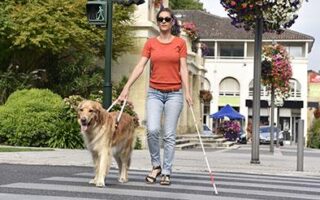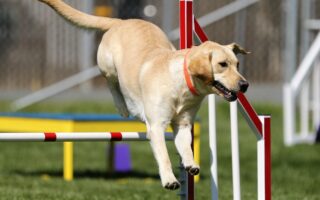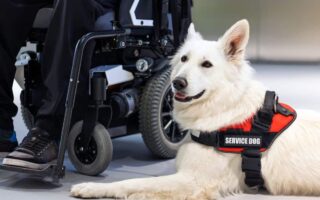The Heart of Hunting: Unleashing the Potential of Gun Dogs
In the quiet embrace of dawn, as the mist clings to the ground and the sound of rustling leaves fills the air, the bond between human and canine takes center stage in the age-old pursuit of hunting. Gun dogs, specially bred and trained for their remarkable skills, have served as indispensable companions to hunters for centuries. These remarkable animals embody not just a unique expertise in retrieving game, but also an unwavering loyalty and instinctive understanding of their handler’s needs. From pointing breeds that stand sentinel over a scent, to retrievers that dive into water with effortless grace, each gun dog brings a distinctive flair to the tradition of hunting. In this article, we will explore the world of gun dogs—delving into their history, training, and the vital role they play in enhancing the hunting experience, as well as the deep-seated bond that flourishes between handler and dog. Join us as we unravel the threads of partnership, instinct, and tradition woven into the fabric of these extraordinary hunting companions.
Table of Contents
- Understanding the Versatile Roles of Gun Dogs in Field and Home
- Essential Training Techniques to Cultivate a Reliable Gun Dog
- Choosing the Right Breed: Factors to Consider for a Gun Dog Companion
- Health and Care: Maintaining Peak Performance in Your Gun Dog
- Q&A
- In Summary
Understanding the Versatile Roles of Gun Dogs in Field and Home
Gun dogs, revered for their multifaceted abilities, excel in various roles that extend beyond the hunting fields. Their keen sense of smell and unwavering loyalty make them indispensable companions not only in the wild but also in the domestic setting. Common breeds like Labs and Goldens have been honed through generations to retrieve game efficiently, yet their skills translate effortlessly into the home environment. Dog owners often find that these intelligent breeds are adept at tasks such as:
- Companionship: Their friendly demeanor and affectionate nature make them the perfect family pets.
- Assistance: Many gun dogs are trained to support individuals with disabilities, using their agility and intelligence to help.
- Obedience: With proper training, gun dogs are known for their ability to learn commands quickly and respond reliably.
Moreover, the adaptability of gun dogs is evident in their interactions with various family members. Not only do they participate in outdoor activities, but they also thrive in roles that nurture social bonds. Owners often unearth their dog’s unique talents in the household context, showcasing behaviors such as:
| Skill | Example Task |
|---|---|
| Retrieving | Picking up items like toys or laundry |
| Alertness | Notifying owners of unusual sounds |
| Follow-up | Keeping track of children while playing outside |
Essential Training Techniques to Cultivate a Reliable Gun Dog
Training a reliable gun dog is an art that demands patience, consistency, and a deep understanding of canine behavior. Building a strong bond between you and your dog is foundational. The connection you foster will facilitate communication, making the training process smoother and more effective. Incorporate positive reinforcement techniques, such as treats and praise, to encourage desirable behaviors. It’s essential to establish a routine that includes various forms of training that your dog will enjoy, which will help solidify their learning experience.
Consider implementing these key training techniques to enhance your dog’s skills:
- Basic Obedience: Teach commands like sit, stay, and come early on.
- Socialization: Expose your dog to different environments, animals, and people.
- Retrieving Drills: Use dummies or soft toys for retrieve training; start with short distances.
- Recall Training: Practice recall in a controlled space before transitioning outdoors.
- Fieldwork: Gradually introduce your dog to hunting scenarios, simulating real conditions.
| Technique | Purpose |
|---|---|
| Basic Obedience | Foundation for all further training. |
| Socialization | Encourages adaptability and confidence. |
| Retrieving Drills | Enhances natural retrieving instincts. |
| Recall Training | Ensures your dog returns to you reliably. |
Choosing the Right Breed: Factors to Consider for a Gun Dog Companion
When it comes to selecting the perfect breed for your gun dog companion, several essential factors should guide your decision-making process. Start by considering your hunting environment. Different breeds excel in various terrains, whether it’s dense forests, open fields, or marshy wetlands. For instance, if your hunting primarily involves retrieving waterfowl, breeds like the Labrador Retriever or the Golden Retriever might be ideal due to their strong swimming capabilities and excellent noses. Additionally, think about your activity level and how much time you can dedicate to training and exercising your companion. Some breeds require more physical activity and mental stimulation than others, which can significantly influence their suitability as your hunting partner.
Another critical element is the breed’s temperament and trainability. A calm and eager-to-please dog may better understand commands and adapt to training routines. Consider creating a chart to compare various breeds against the characteristics that matter most to you. Here’s a simple comparison table of popular gun dog breeds highlighting key traits:
| Breed | Temperament | Trainability | Exercise Needs |
|---|---|---|---|
| Labrador Retriever | Friendly, Energetic | High | High |
| German Shorthaired Pointer | Intelligent, Active | High | High |
| Beagle | Amiable, Curious | Moderate | Moderate |
| Cocker Spaniel | Playful, Affectionate | Moderate | Moderate |
Ultimately, the perfect gun dog companion is one whose attributes align with your hunting style and lifestyle. By carefully weighing these factors, you can ensure that you choose a breed that not only excels in the field but also becomes a cherished member of your family.
Health and Care: Maintaining Peak Performance in Your Gun Dog
To ensure your gun dog remains in optimal shape for both performance and longevity, it’s essential to prioritize a well-balanced routine of nutrition, exercise, and mental stimulation. Nutrition plays a pivotal role, requiring high-quality dog food rich in proteins and essential nutrients to fuel their active lifestyle. Consider implementing a feeding schedule that aligns with their training and hunting activities. Regular veterinary check-ups can help monitor their health and address any dietary deficiencies. Additionally, adding supplements such as glucosamine can support joint health, particularly in active breeds.
Alongside nutritional considerations, exercise and mental engagement are critical to maintaining your dog’s peak performance. Engage your gun dog in activities that challenge their physical limits and stimulate their instincts, such as fetching, swimming, or agility training. Here’s a quick breakdown of ideal activities by age group:
| Age Group | Recommended Activities |
|---|---|
| Puppy | Short walks, puppy socialization classes |
| Adult | Daily hunting drills, obstacle courses |
| Senior | Gentle walks, scent games |
Incorporating a variety of tasks and challenges can help enhance your gun dog’s natural abilities while keeping them engaged and fulfilled. Don’t forget to balance their physical exertion with ample downtime to recover, especially after rigorous exercise sessions; this promotes not only their mental well-being but also strengthens your bond through shared experiences.
Q&A
Q&A: Understanding the World of Gun Dogs
Q: What is a gun dog?
A: A gun dog is a breed of dog specifically trained to assist hunters in their pursuit of game. These dogs are known for their keen sense of smell, intelligence, and agility. They work closely with humans to flush out, retrieve, or track game, making them indispensable companions in the field.
Q: What types of gun dogs are there?
A: Gun dogs are generally divided into three main categories: pointers and setters, flushing spaniels, and retrievers. Each type has unique abilities suited to various hunting styles. Pointers and setters excel in locating game by using their noses and “pointing” it out to the hunter. Flushing spaniels are great at driving birds out of cover. Retrievers, as the name suggests, are exceptional at retrieving fallen game.
Q: How are gun dogs trained?
A: Training a gun dog usually begins with basic obedience commands and progresses to more specialized skills like scent detection, retrieval, and marking. Training often involves positive reinforcement techniques, and it can take several months or even years to develop a highly skilled hunting partner. Field training, socialization, and exposure to different environments are crucial for cultivating a well-rounded gun dog.
Q: Are gun dogs only suitable for hunters?
A: While gun dogs are specifically bred and trained for hunting, they can also make excellent family pets. Many gun dog breeds are known for their friendly dispositions, intelligence, and playfulness, making them suitable for various environments as long as they receive sufficient exercise and mental stimulation.
Q: What characteristics should someone consider when choosing a gun dog?
A: Prospective owners should consider factors such as the dog’s temperament, energy level, size, and grooming needs. They should also evaluate their own lifestyle, hunting habits, and ability to provide adequate training and exercise. Different breeds may be better suited for certain types of game or hunting environments, so it’s wise to do some research before making a choice.
Q: Are there any health concerns associated with gun dog breeds?
A: Like all dog breeds, gun dogs may be predisposed to certain health issues. Common concerns can include hip dysplasia, ear infections (in spaniels), and eye disorders (in retrievers). Regular veterinary check-ups, a balanced diet, and proper exercise are vital to maintaining their overall health.
Q: Can anyone become a gun dog handler?
A: Absolutely! Anyone with the passion and dedication to train and work closely with a dog can become a gun dog handler. While experience in hunting can be beneficial, it’s not a strict requirement. With patience, commitment, and the right training methods, anyone can establish a successful partnership with a gun dog.
Q: What role does the gun dog play in the hunting experience?
A: The presence of a gun dog enhances the hunting experience both practically and emotionally. Practically, they help in locating, retrieving, and tracking game, making the hunt more efficient. Emotionally, the bond between hunter and dog adds depth to the experience, transforming it into a partnership built on trust and teamwork.
—
Q: How can I get involved in the gun dog community?
A: Engaging with the gun dog community can be achieved through hunting clubs, training groups, and breed-specific organizations. Attending local events, trials, and competitions is a great way to meet fellow enthusiasts, learn new skills, and deepen your understanding of gun dogs and their training.
In Summary
As we conclude our exploration into the world of gun dogs, it’s clear that these incredible animals embody a unique blend of loyalty, intelligence, and skill. From the dense underbrush of the hunting grounds to the warm company of their handlers, gun dogs forge a bond that transcends mere utility; they become cherished companions and integral partners in the pursuit of the elusive game.
Training a gun dog is not just about instilling obedience or refining instinct; it’s about fostering communication and trust, creating a partnership that thrives in harmony with the natural world. As you embark on your journey with a gun dog, remember that patience and understanding are just as important as commands and techniques.
Whether you’re a seasoned hunter or a novice enthusiast, the joy and satisfaction of working alongside a well-trained gun dog can enhance your outdoor experiences in ways you never imagined. So, as you head out into the field, take a moment to appreciate the remarkable connection between humans and dogs—a bond built on shared purpose, respect, and the thrill of adventure. Here’s to many successful hunts and lasting memories with your four-legged companion by your side.


